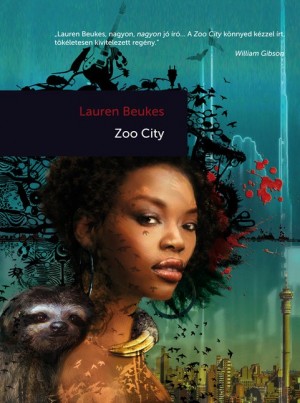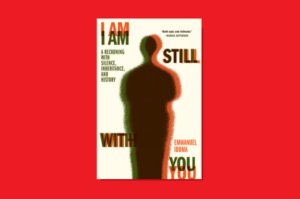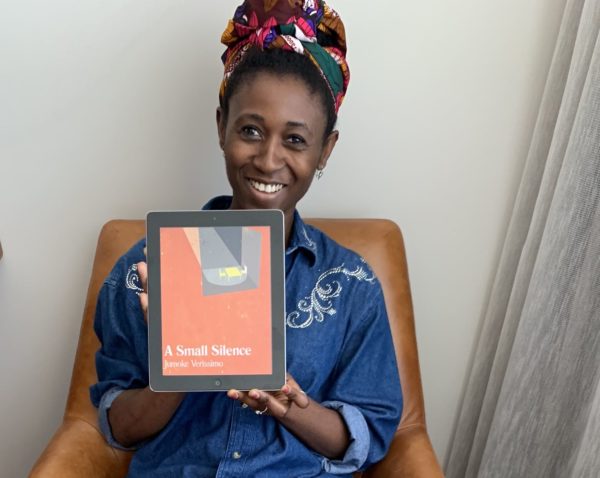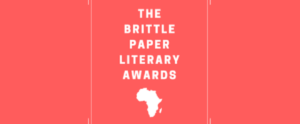 Zoo City is not science fiction in the classic sense. There are no flying saucers, sexy body suits, slimy aliens, or sterilized outer space stations. There is witchcraft, 419, drugs, and genetic mutation. Zoo City, written by South Africa’s Lauren Beukes, is certainly among the small cluster of African novels that have tried to stay true to the strange and grotesque world of Amos Tutuola and D. O. Fagunwa, the fathers of African fantasy. In 2011, the novel won Beukes the prestigious Arthur C. Clark Award for Science Fiction. There is no doubt that Zoo City is the reason that expectations are sky high for Beukes’ fourth novel The Shinning Girls, set to drop on June 4.
Zoo City is not science fiction in the classic sense. There are no flying saucers, sexy body suits, slimy aliens, or sterilized outer space stations. There is witchcraft, 419, drugs, and genetic mutation. Zoo City, written by South Africa’s Lauren Beukes, is certainly among the small cluster of African novels that have tried to stay true to the strange and grotesque world of Amos Tutuola and D. O. Fagunwa, the fathers of African fantasy. In 2011, the novel won Beukes the prestigious Arthur C. Clark Award for Science Fiction. There is no doubt that Zoo City is the reason that expectations are sky high for Beukes’ fourth novel The Shinning Girls, set to drop on June 4.
The world of Zoo City is contemporary and recognizably South African. Xenophobia is still a widespread sentiment. Cities are separated by strong lines of difference that remind one of apartheid. But people are not divided along racial lines but on the basis of a weird condition called aposymbiosis a.k.a. being “animalled.” Being animalled, the concept around which the entire novel is built, is the result of a genetic mutation that took place sometime in the early 2000s and caused a strange bond to develop between some humans and animals. Imagine a scarlet letter in the form of an animal. After killing her brother inadvertently, Zinzi December is assigned a sloth to carry on her person for the rest of her life partly as punishment, partly as proof of guilt, partly as a symbol of shame for having taken a person’s life. Sloth is Zinzi’s sidekick, conscience, best friend, and body part. The bond between Zinzi and sloth is physical, telepathic, and emotional. As Zinzi puts it, “Crack cravings have nothing on being away from your animal.” When an animal dies, the human counterpart dies. As you can imagine, there is a thriving black market for human and animal parts used as ingredients for powerful fetish. That’s why you do whatever you can to keep your animal close and safe.
Animalled people are forced to live in slums, the most popular and notorious of which is called Zoo City. When we meet Zinzi, she is an ex-drug addict, ex-celebrity reporter, and ex-convict. Ostracized by family and friends, she lives in Zoo City irking out a living doing odd jobs like helping people find lost things. But that’s just her day job. At night, she crafts 419 scam letters for a crime syndicate that isn’t “hanging out in a huge sprawling Internet café adjoining a raucous street market in Accra or Lagos” but operating from South Africa’s Zoo City. When Zinzi reluctantly takes on a job to find a missing person, she embarks on an adventure that takes her deep into the underworld of 419 scams, drug trafficking, and ritual killings. Zinzi’s story will have you reeling from fright and delight. Imagine James Bond trapped between black magic and science fiction. That’s what Zoo City reads like.
If you are used to Chimamanda Adichie’s novels about middle class African life written in carefully measured prose, Zoo City would come as a shock. Zoo City has a pop-fiction feel. It reads like Fifty Shades of Grey—filled with clichés and catchy turns of phrases. But what this tells me is that the power of the novel lies less in any aspiration towards the super-refined and excessively delicate prose of highbrow fiction. Beukes is not writing a fiction about African bourgeois domestic life. Hers is a world turned inside out, a world where the distinction between humans and animals, between the magical and the scientific is all but collapsed. Beuke’s world is all grits and grime and it makes sense for the language and style to reflect that.
Beukes has a film deal for Zoo City and is already negotiating film rights for The Shinning Girls. This should tell you that as far as entertainment value goes, Beukes’s novels are solidly legit.
A review I wrote for the super-cool 37th State Blog.








So Many Ways To Stay Socially-Conscious As an African Writer—The Case of Lauren Beukes’ Charity Art Show | Brittle Paper September 23, 2013 00:16
[…] Read my review of Zoo City HERE. […]